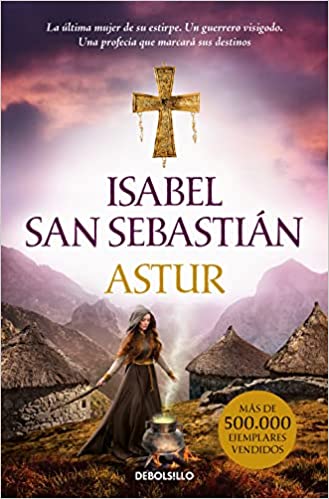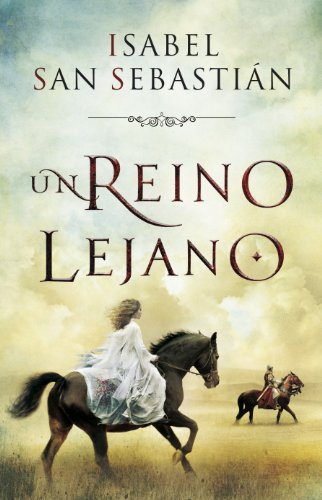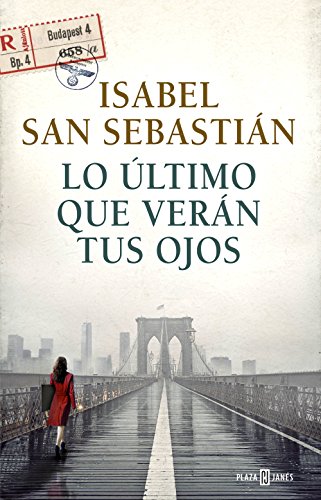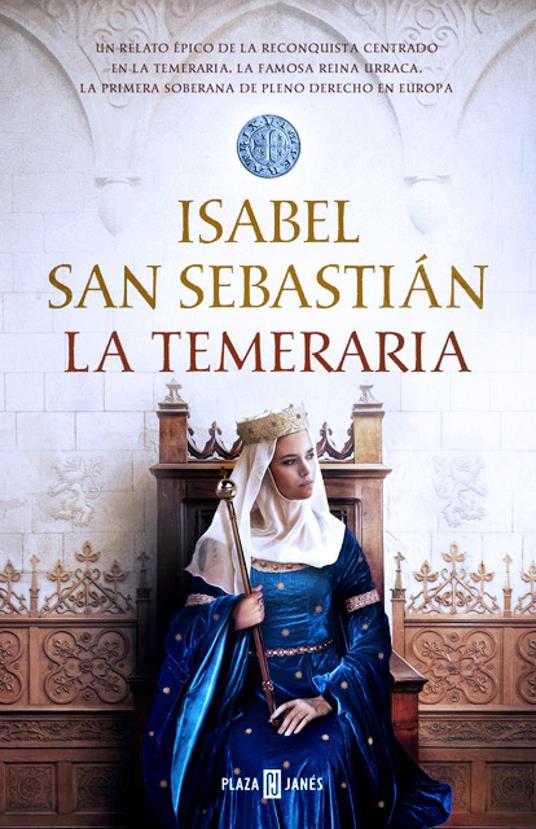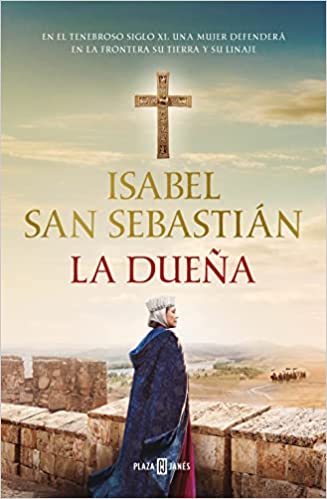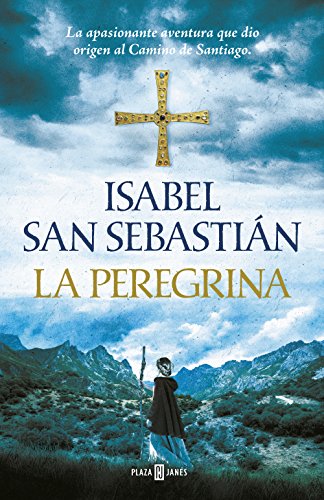Journalist and daughter of a diplomat, Isabel San Sebastian shares very similar literary motivational casuistry with another writer, Carmen Posadas placeholder image. And it is that being born already traveling from one side of the world to another, under the umbrella of the office of a parent in full diplomatic career, always enriches and can end up discovering the imprint of the narrator capable of treasuring very interesting impressions about a world changeable from the tender age.
In the case of Isabel San Sebastian, His dedication to literature has been shared with a fruitful performance as a journalist, especially as a columnist and commentator. And we all know that vehement touch with which this journalist comments on social or political news.
A passion that, beyond communion or total disagreement with his ideas, gives a good example of a critical mark, of a vivid will to offer his perspective on crucial events of our days.
Criticism is one of the components of what is known as "writer's wood." To tell something, to tell a story, we must always find the imprint that pushes us to write, to create a novel full of the sum of subjectivities of characters that must necessarily be critical, untimely at times, tremendously human with their contradictions in tow. .
This author has written social or political chronicle books and historical novels that are increasingly recognized by her readers. We go there with the best of his pen ...
Top 3 recommended novels by Isabel San Sebastián
Astur
Edited back in 2009 and reissued in 2022 to popular acclaim. One of those initiation stories regarding the future of the Iberian Peninsula. Because yes, old Spain is not so old looking back. Even less like that unity in the universal that the homelands of one side or the other evoke. Neither is Germany or France. Nations are constructs and what remains is the sum of their people and the will to coexist to get the best out of the synthesis. Today separatism promotes hatred. In the past, the Iberian peoples sought union to be stronger...
On a moonless night, at the beginning of the XNUMXth century, Huma was born in the Kingdom of Asturias, daughter and sole heiress of the priestess of the Coaña fort, marked by a prophecy and a curse. At the same time, in Recópolis, occupied by the Muslims, the young Ickila dreams of emigrating north and joining the Christians in their fight against the Saracens who dominate almost the entire peninsula. For this reason, when after a brawl he faces exile, he decides to seek his fortune on the other side of the mountains, where Prince Alfonso leads an army of Asturians, Cantabrians and Goths determined to resist without submitting or paying tribute.
Fate weaves its threads to unite Huma and Ickila, the Visigothic people with the Asturian, in two intertwined stories that really form one. Isabel San Sebastián creates in Astur a captivating chronicle in which history and legend transport the reader to the heart of an exciting epic.
A distant kingdom
Christianity and its eternal struggle for the hegemony of the known world. We go back to the thirteenth century and between the historical circumstances of the Crusades led by the Pope on duty and seconded by any king or nobleman who wanted to obtain perks, preeminence in agreements and other substantial gains, it is there that we meet the knight Gualterio, displaced until the distant Jerusalem from its original Barbastro.
The conquest of distant lands to the east is not an easy task in a time when the Mongols are uncovered as a warlike people. When Gualterio and his son Guillermo are arrested, their fate seems marked by summary justice and death.
But what awaits them is finally slavery. The Mongols understand that having manpower sourced directly from the enemy is a great possibility. And so they remain father and son, living poorly for decades. Although Guillermo, still young, begins to understand the ideas and beliefs of that new world as his own.
The fortuitous return home will generate a great conflict. The wife and mother Braira, who also endured the loss of her two men, will find that nothing will ever be the same again...
The last thing your eyes will see
Combining two genres as currently claimed as historical fiction and thriller can always be a success if finally the plot composes a suggestive, dynamic and balanced story.
A painting by El Greco that goes up for auction and the testimony of its fairest possible owner. The dealer Carolina Valdés finds herself involved in a frenetic search for the truth, one of those uncomfortable truths that link to the dark days of Nazi plunder and that traces a frenetic evolution between past and present.
The problem is that this past, in addition to plundering and known crimes of Nazism, hides many other secrets of great significance that can put the protagonists of the novel at great risk.
Other recommended books by Isabel San Sebastián…
The daredevil
There are always great stories to develop with that "necessary" fictional point of view. Because in the absence of greater details in which to discover the current historical character, the narrator of historical fictions must delve into the gloomy scenario of extrapolation from the official chronicle. And with it, soak up the fascinated readers.
12th century, Kingdom of León. In the midst of the Almoravid offensive, with Christianity cornered, Urraca, daughter of Alfonso VI and legitimate heir to the Leonese throne, marries Alfonso I of Aragon, fulfilling the last will of her recently deceased father. Those "damned weddings" unleash an all-out fight between the sovereign and her husband, the Battler, determined to usurp her crown to exercise a power that by right belongs to her.
Told through the eyes of Muniadona, her closest maid, this novel recreates the eventful life of the first queen of Spain and Europe, a woman abused and even raped, but never defeated, who was forced to confront her husband, his own son and all the prejudices of his time to play the role that history, often dressed in iron, had assigned him.
The owner
Year 1069 of Our Lord. Christians and Muslims wage a merciless struggle in Hispania, divided in turn into kingdoms and taifas devastated by internal disputes. In this ruthless world, Auriola recounts to her grandson Diego de ella the deeds of her grandfather Ramiro de ella, a frontiersman fallen in combat in the service of her king, while she alone defends the land that married her from she won with the sword. Grandmother and grandson must survive the fratricidal wars between Navarra, León and Castile, save the family legacy and stand up to the brutal attack of the Almoravids.
In addition to a work that reflects in all its crudeness and fascination a decisive era in Spain, The owner It is an emotional story that reaches the heart and shows us how the great conflicts of history affect thousands of anonymous stories written with blood and sweat.
The pilgrim
A novel that summarizes the previous two a bit. Medieval history, only of darker centuries of the high middle ages and mysteries of those dark days.
The Catholic religion and its old emblems. Santiago and his emblematic mystical journey. His remains as a discovery that already in the year 827 can be a whole plot of conspiracies in which kings, nobles and soldiers are involved.
Alana's essential role as the ultimate emblem of a path taken up for centuries and centuries by millions and millions of walkers. Undoubtedly a novel about the foundations of Christianity ...

